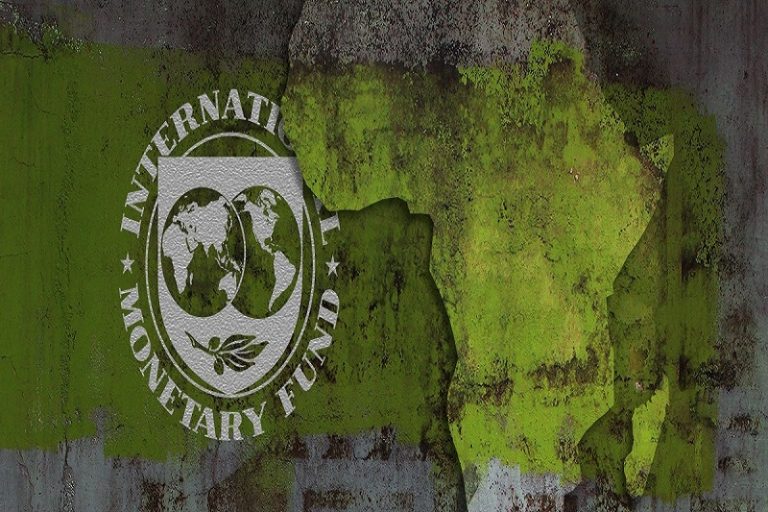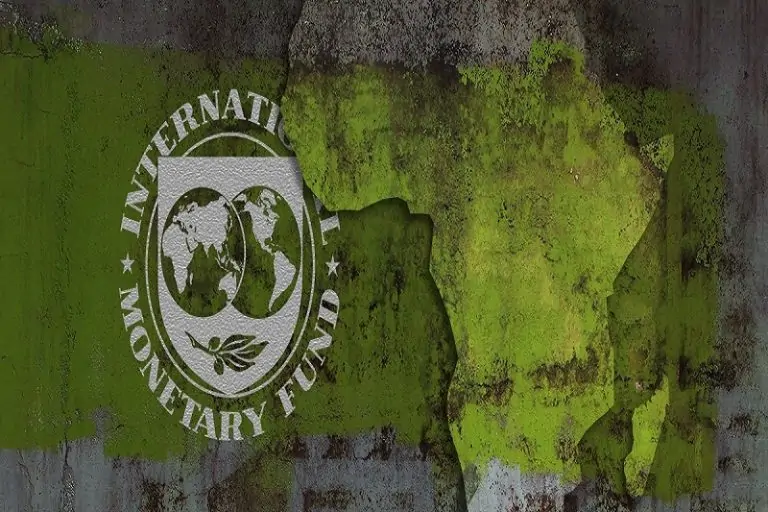

2022 05 2iss today africa imf banner
Sub-Saharan Africa is grappling with a series of economic shocks, including the COVID-19 pandemic, geopolitical events like Russia’s invasion of Ukraine, and rising US interest rates. These factors have left governments with high debt and complex fiscal decisions.
While the IMF suggests measures like reducing fuel subsidies and increasing taxes, these recommendations often face resistance. Countries like Ghana, which defaulted last year, and Kenya, facing the repayment of a $2 billion foreign loan, have witnessed protests against tax hikes and subsidy cuts.
According to recent research by the IMF, if Sub-Saharan Africa doesn’t alter its fiscal trajectory, its debt-to-GDP ratio, which has already quadrupled to 60% in the past decade, could increase by 10 percentage points in the next five years, exceeding levels seen in the prior decade.
African governments must make difficult choices due to a rapidly growing population and the impacts of climate change. These choices include reducing spending to meet rising public funding demands.
Several countries, including Kenya, have mandated government agencies to reduce their operational budgets. Angola, highly dependent on oil revenue, has faced extreme austerity, leading to the suspension of certain non-social expenditures.
Interest payments on debt in developing nations have outpaced spending on health, education, and investment, as per a report by the United Nations Global Crisis Response Group. In Sub-Saharan Africa, the debt interest-to-government income ratio is approximately 10.5%, more than double that of a decade ago and three times that of industrialized countries.
Public spending in 26 Sub-Saharan African nations is expected to decline in real terms in the next five years. This could hinder the improvement of human capital and productivity, as public resources are increasingly allocated to debt servicing.
To address subsidy programs that primarily benefit higher-income brackets, some African nations are starting to phase out fossil fuel subsidies. Countries like Senegal, Angola, and Nigeria have initiated subsidy reductions, but these measures are not without challenges, as witnessed in Angola.
Zambia, after defaulting in 2020, is making hard choices to restructure its debts and pursue economic reforms. The government had to end fuel subsidies to allocate resources to education, exemplifying the complex decisions required.
MultiChoice and NBCUniversal have given $145 million to support Showmax Africa. This money will help with running the business and…
The ongoing search for Free State police officers in Centurion resulted in the discovery of five dead bodies found in…
The Sistine Chapel will welcome Cardinal members in the forthcoming week to start electing succession candidates on May 7 for…
Namibia’s President, Netumbo Nandi-Ndaitwah, has removed Agriculture Minister Mac-Albert Hengari from his position. The decision came after serious allegations of…
Manchester United manager Ruben Amorim has confirmed that defender Diogo Dalot might miss the rest of the season due to…
Tanzanian President Samia Suluhu Hassan has praised Simba SC after the team made history by reaching the final of the…
This website uses cookies.